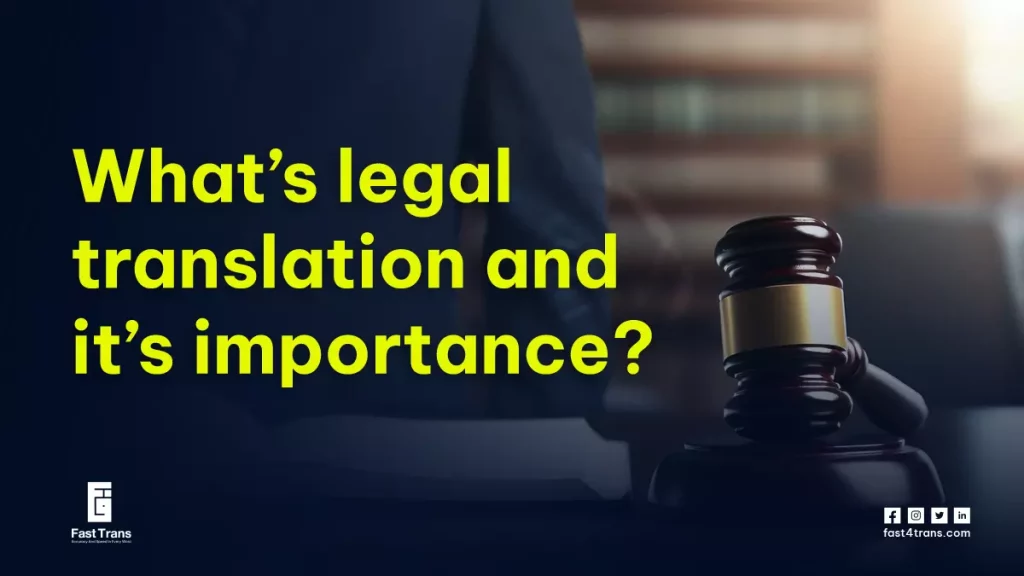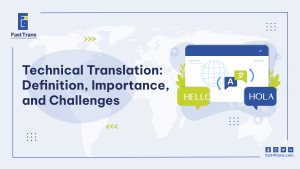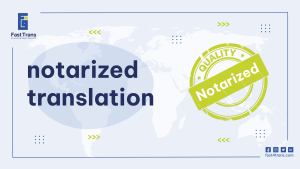Arabic legal translation is a vital service that ensures the precise conversion of legal documents, such as contracts, court papers, and business agreements, into Arabic while preserving the original meaning and legal accuracy. The Arabic Legal Translation Importance lies in its impact on legal clarity and compliance.
This specialized field demands expert knowledge of legal terms, local laws, and cultural nuances, as even a small error can lead to significant legal consequences. From international contracts to immigration papers, accurate Arabic legal translations foster trust, ensure compliance, and protect individuals’ rights across Arabic-speaking regions, making them indispensable for smooth legal and business operations.
What is Arabic Legal Translation?
Arabic legal translation refers to the process of translating legal documents, manuscripts, papers, and official credentials from one language into Arabic. It is crucial that the content and meaning of the original document are preserved in the translation. Legal documents should only be translated by experts or specialists familiar with legal terminology and principles. These legal documents include, but are not limited to:
- Legal contracts translation.
- Courts documents translation.
- Work license translation.
- International treaties translation.
- Commercial registers translation.
- Personal documents translation.
- Scientific certificate translation.
- Official correspondence translation.
- Travel and immigration documents translation.
Importance of The Arabic Legal Translation
Precise translation of legal texts into Arabic requires expert knowledge of local laws and regulations to ensure accuracy, authenticity, and protection of individual rights, with thorough quality assurance to avoid critical errors.
1. Quality Assurance:
It is essential to review the translated copy with legal professionals, such as attorneys, to ensure it is an exact replica of the original document in meaning and intent.
2. Impact of Errors:
Mistakes in Arabic legal translation are not just linguistic issues—they can severely affect or even nullify individuals’ rights.
3. Accuracy and Authenticity:
Arabic Legal translation must be handled with the utmost precision and fidelity to ensure the text conveys its original meaning accurately.
4. Expert Knowledge:
Translators or translation teams must be well-versed in the laws, legislation, and commercial regulations of the target country to provide contextually appropriate translations.
What are Arabic legal translations used for?
Arabic legal translations are crucial for enabling clear communication and legal compliance in Arabic-speaking regions, covering diverse needs such as contracts, court proceedings, immigration, corporate documents, intellectual property, trade agreements, academic recognition, and estate planning. They ensure accuracy and adherence to local laws, fostering trust and protection in cross-border interactions.
1. Legal Contracts and Agreements
Arabic legal translations are essential for contracts and agreements involving international parties. Whether it’s business partnerships, real estate transactions, or employment contracts, translating these documents into Arabic ensures mutual understanding and legal validity in Arabic-speaking jurisdictions.
2. Court Proceedings and Litigation
Legal translations are often required for court proceedings when documents, evidence, or rulings are originally in a different language. Certified Arabic legal translations ensure the content is accurately presented to comply with judicial standards in Arabic-speaking courts.
3. Immigration and Residency Applications
Governments in Arabic-speaking countries often require legal documents such as birth certificates, marriage licenses, or criminal records to be translated into Arabic for immigration or residency applications. Accurate translations help streamline these processes and ensure compliance with legal requirements.
4. Corporate and Business Documentation
Businesses operating in Arabic-speaking countries rely on legal translations for documents such as bylaws, shareholder agreements, and corporate policies. These translations enable companies to comply with local regulations and effectively communicate with stakeholders.
5. Intellectual Property (IP) Rights
Legal translations are critical for registering trademarks, patents, and copyrights in Arabic-speaking countries. Translating IP-related documents into Arabic ensures that businesses can protect their assets and enforce their rights within these regions.
6. International Trade and Agreements
With Arabic-speaking countries playing a significant role in global trade, legal translations facilitate negotiations, contracts, and regulatory compliance. Accurate translations ensure that trade agreements and import/export documentation meet local legal standards.
7. Educational and Academic Recognition
Students and professionals often need legal translations of academic transcripts, diplomas, and certifications for recognition in Arabic-speaking countries. These translations ensure that their qualifications are understood and accepted by educational institutions or employers.
8. Wills and Estate Planning
For expatriates or locals managing assets in Arabic-speaking regions, legal translations of wills and estate documents are crucial. These translations ensure that the testator’s wishes are legally recognized and respected.
Legal Arabic Translation Methods
Legal Arabic translation is a highly specialized field that requires much more than just linguistic fluency. Since a translation error can have serious legal or financial consequences, translators must employ specific methods that prioritize legal accuracy, conceptual equivalence, and formal fidelity to the source text.
Here is an overview of the key methods and approaches used in Legal Arabic Translation:
The overarching strategy in legal translation is often a Communicative or Functional Approach (Skopos Theory), where the final text must serve the same legal purpose and produce the same legal effect as the original in the target legal system.
a. Strict Fidelity (Accuracy and Completeness):
Rule: The translator must ensure that the translated text is an exact legal replica of the original in meaning and intent. No word or phrase that affects the intended legal meaning should be added, omitted, or altered.
Method: This often necessitates a method close to Literal Translation or Semantic Translation to maintain the precise terminology and structure of the source text, especially in contractual and official documents.
b. Equivalence over Literalism (Conceptual Matching):
Rule: The translator must find the closest legal concept in the target language’s legal system, even if the literal words don’t match. This is crucial due to the different legal traditions (e.g., Shari’a, Civil Law, Common Law) that influence Arabic and English legal systems.
Method: Dynamic Equivalence or Equivalence/Reformulation is used for terms where a word-for-word translation would mislead the reader about the legal concept (e.g., translating “رهن” which can mean pledge, collateral, or mortgage depending on the context).
c. Formal Consistency:
Rule: Maintaining the formal, impersonal, and repetitive style typical of legal discourse (especially in Arabic, which often uses archaic terms and avoids pronouns for clarity).
Method: Using Consistent Terminology and maintaining the original document’s format (clauses, subclauses, formal expressions) to ensure the translated document is legally acceptable.
The rules and the strategies of Arabic legal translation
Arabic legal translation demands precise adherence to linguistic nuances, cultural contexts, and legal frameworks to ensure the original meaning is preserved. Translators must expertly balance maintaining established Arabic legal terms, adapting to target language conventions, conforming to document formatting standards, and staying updated on evolving legal changes.
1. Maintain the commonly used Arabic legal terms:
The powerfulness of expressions and words in one language varies among different words. One meaning can be expressed by more than one word, but each one gives diverse connotations to the readers.
It’s, thus, very important that the translator should fully understand how powerful the word is in the source text before translating it into other languages. This affects the way the document maintains its original meaning and, at the same time, requires refined skills and capabilities of the translator.
2. Maintain the original meaning:
Sometimes, there aren’t synonymous equivalents in the target language, the translator, therefore, has to search for a proper equivalent that can match the meaning of the source text. This skill demands that the translator should be acquainted with the culture, the rules, and the laws of the country whose language is being translated into.
3. Matching the formatting of the legally translated documents with the target language document:
Each country maintains a specified format for its legal documents. The translation team, thus, has to fully conform to this format. At the end of the day, it’s sought to have two identical copies in form, but only different in the language.
4. Consistent familiarity with the legal changes:
One of the characteristics of the laws is that they always change. The translator, hence, is asked to keep himself updated with the new laws lest he commit a mistake in the translation that causes problems later on.
Advantages of Arabic legal translation and how it differ from other translations?
Arabic Legal translation is unique and if an experienced translator moves from translating general texts to legal ones, he is obliged to exert more effort to understand it despite its difficulty. Here, we mention some of the advantages of Arabic legal translation that make it stand head and shoulders over the other translation domains:
- The official and strict text that’s free of emotions and enthusiasm.
- The Arabic legal translation uses obsolete words and archaic linguistic structures but they can still be understood in the legal context.
- Repetition is always there in a way the subject is used consistently with no pronouns to replace it, such as he or she.
- The sentence structure is complicated, vague, and long.
- The translation language is based on verbs and what either must or should be done. This labels it as something away from being an ordinary descriptive language, but it goes by the purposes of the legal text.
Characteristics and requirements of Arabic legal translation:
Arabic legal translation requires precision, confidentiality, and adherence to legal terminologies to ensure accurate, valid texts. Translators must balance linguistic fidelity, cultural nuances, and strict deadlines while maintaining the integrity and clarity of complex legal documents.
1. Confidentiality:
the translation of the official legal documents kept in secrecy. It’s noteworthy that Fast Trans has its protocol to deal with Arabic legal translation information confidentiality.
2. Errors-free translations:
The translated legal texts should be accurate and error-free to be a valid translation. It’s noteworthy that a single linguistic error can either render the official document translation invalid or do certain harm. A simple error, for example, manifested in having similar names of the accused and the innocent by adding or deleting one letter of the names can lead to a catastrophe.
3. Similarity:
It has to be made sure that the translated text meaning has to be similar to the source text meaning. One of the characteristics of Arabic legal translation is the keenness of having an accurate translated text that’s a spitting image of the source text. This means that the legal translator isn’t allowed to either add or delete something that affects the intended meaning. For example, there is a difference between possible and probable on one hand and common, known and famous on the other.
4. Commitment to the legal terminologies and formulas:
every type of legal document and manuscript has a certain formula by which the translator is obliged to conduct a spitting image translation of the source text. Keep in mind that no governmental body can accept a legal document that doesn’t conform to the legal formula of the source text as it’s an inseparable part of it.
5. Punctuality:
the time frame given by the client should be prioritized. Most of the time, the legal documents translation should be delivered in a certain time or this will harm the client if time is missed.
6. Flexibility:
there should be some flexibility as per the text because this is vital in Arabic legal translation. The translator, thus, needs to change the way he deals with the text and translate it as per the general context.
7. Legal differences:
the legal differences among the diverse systems should be fully comprehended either in the same country or the same language.
8. Honesty of translation:
the honesty and accuracy of text translation should be taken care of. This is done without paying attention to the text’s aesthetics or literary aspects while honing the text style.
9. Complexity:
the Arabic legal translation is so complicated, difficult, and important at the same time. There should be some methods in mind to follow while translating the text’s meaning, clarifying it as much as possible and overcoming the legal translation challenges.
Why are Arabic legal translations difficult?
Arabic legal translations are challenging due to the language’s rich vocabulary, intricate syntax, and culturally rooted legal terms, often tied to Islamic law or local systems. Translators must balance precision and clarity while navigating unstandardized terminology, complex formatting, and high-stakes implications.
1. Linguistic Complexity
- Rich Vocabulary and Nuances: Arabic is a language with an extensive vocabulary and a high level of nuance. Many Arabic words have multiple meanings depending on the context, making it difficult to find precise equivalents in other languages.
- Syntax and Structure: Arabic sentence structure is often intricate, with complex syntax that can differ significantly from the target language. Legal documents, in particular, tend to use long, highly structured sentences that require careful deconstruction for accurate translation.
2. Legal Jargon and Terminology
- Legal language is inherently specialized, and Arabic legal texts often contain terms that are deeply rooted in Islamic jurisprudence (Sharia) or local legal systems. Translating these terms accurately requires an in-depth understanding of both the Arabic legal framework and the target language’s legal system.
- Some legal concepts in Arabic may not have direct equivalents in other languages, requiring the translator to find functional equivalents or provide explanatory translations.
3. Cultural and Legal Systems
- Differences in Legal Systems: Arabic-speaking countries often have hybrid legal systems combining civil law, common law, and Islamic law. Translators must understand these systems and how they compare to the legal framework of the target language.
- Cultural Nuances: Arabic legal documents are deeply influenced by the cultural and historical context of the region. This can lead to challenges in conveying culturally specific concepts in a way that makes sense in the target language.
4. Precision and Clarity
- Legal documents must be translated with absolute precision because even small errors can have significant consequences, such as altering the meaning of contracts, agreements, or court rulings.
- Maintaining clarity while preserving the formal tone and style of the original Arabic text is a delicate balance that requires expertise.
5. Lack of Standardization
- Unlike some other languages, Arabic does not always have standardized legal terminology across all Arabic-speaking countries. Words or phrases used in one country may have different connotations or interpretations in another.
6. Complex Formatting and Structure
- Arabic legal documents often have specific formatting requirements, including clauses, subclauses, and formal expressions that must be maintained in the translation. The right-to-left script and bidirectional text challenges can also complicate the layout and formatting process.
7. High Stakes and Legal Implications
- Legal translations are often used in critical contexts, such as court cases, business contracts, immigration, and government documentation. Mistakes can lead to disputes, financial losses, or legal liabilities, increasing the pressure on translators to deliver flawless work.
Arabic Legal translation steps in the accredited translation companies:
Accredited Arabic legal translation companies ensure precise results by defining document purposes, aligning with relevant legal systems, utilizing appropriate references, and conducting specialized reviews. These steps guarantee translations meet institutional and legal requirements with accuracy and consistency.
1. Understanding the document’s purpose:
The first step of the valid Arabic legal translation is to know the purpose of the document and the institution that needs it. This basic step will help you to know the trajectory in which you should abide, guide you to the laws you should be familiar with, and follow the best strategies of Arabic legal translation.
2. Familiarization with the country’s constitution and laws to which the translation should be delivered:
The Arabic legal translation company should familiarize itself with the country’s constitution and laws to which the translation should be delivered to one of its institutions. This is done to know the legal terminologies used in this field and act accordingly.
3. Using the proper references to conduct Arabic legal translation
It’s necessary, during conducting Arabic legal translation, to use various dictionaries regarding the target language in addition to having a look at the legal manuscripts, documents, and previous translations regarding the subject matter of the document.
4. Reviewing Arabic legal translation by a specialized translator/reviewer:
It’s important that no one completely takes over the translation process in the Arabic legal translation companies. It’s noteworthy that text-reviewing processes should be conducted by experienced individuals in the field of translated documents. The reviewing process should be done to ensure that the document is accurate and similar to the source text regarding the content and the format.
Why is Arabic legal translation different from other types of translation?
Arabic Legal translation stands head and shoulders over the other types of translations because a small mistake can render the legal document invalid. The Arabic legal translation, thus, has so many requirements and it, mostly, has to be accredited before being accepted.
How to get Legal Arabic Document Translation?
To get certified Arabic document translation, identify your needs, choose a trusted provider with expertise in legal translations, and ensure they meet all certification and confidentiality standards. Verify the accuracy of the translation before receiving the final certified copy.
1. Identify Your Requirements
Determine the type of document you need to translate and the purpose of the translation. For instance, legal documents often require certified translation to be recognized by authorities. Ensure you know the specific legal or governmental standards that apply.
2. Choose a Certified Translation Provider
Select a reliable translation company with expertise in legal translations. One such trusted provider is Fast Trans, a leading certified translation company. Fast Trans specializes in legal translations and offers services in Arabic and multiple other languages.
3. Submit Your Documents
Share your documents securely with the translation provider. Most professional companies, including Fast Trans, have secure portals or systems to handle sensitive legal documents.
4. Request a Certified Translation
Ensure the translation service includes certification to validate its authenticity. Fast Trans provides certified translations that are accepted by courts, government offices, and other institutions, ensuring your documents meet all legal requirements.
5. Verify Accuracy and Confidentiality
Legal documents often contain sensitive information. Fast Trans employs experienced translators familiar with legal terminology and adheres to strict confidentiality policies to protect your data.
6. Review and Approve
Once the translation is complete, review the translated document for any discrepancies. Fast Trans prioritizes quality assurance to ensure the translation is accurate and mirrors the original document’s intent.
7. Obtain the Final Certified Copy
After approval, receive the certified copy of your translated document. Many companies, including Fast Trans, offer both physical and digital copies to suit your needs.
How Fast Trans can help with Arabic legal translation?
Arabic Legal translation is one of the well-known domains that need to be accurately conducted. A small error can cause problems to people’s rights. If you need assistance to get your documents translated, look no more as Fast Trans of legal accredited translation can do all types of legal documents and manuscripts professionally and accurately.
It’s noteworthy that Fast Trans issues a translation validity certificate to testify to the correctness of its legal translations. This certificate is an accredited and sealed one that to the correctness and the similarity of the translation to the source text.
What Our Customers Say
Since the translation project is theirs, we encourage the clients to discuss every stage of the process.
You can check our clients’ comments for yourself at Google Reviews.
Conclusion
Arabic legal translation is a specialized field that involves translating legal documents, such as contracts, court papers, business agreements, and personal credentials, into Arabic. It is critical that the translation maintains the exact meaning, integrity, and legal accuracy of the original document.
Only qualified professionals with deep knowledge of legal terminology and the laws of the relevant jurisdiction should handle these translations to ensure that the documents are legally valid and preserve the rights of individuals involved. Properly translated legal documents play a key role in international agreements, court proceedings, immigration processes, and business operations in Arabic-speaking regions.
The Arabic Legal Translation Importance lies in its impact on legal clarity and compliance. Errors in these translations can have severe consequences, including legal disputes or invalidation of contracts. Legal translators must navigate complex linguistic structures, cultural nuances, and specific legal terminology, ensuring that translations are both precise and culturally appropriate.
Additionally, these translations need to align with local laws, and maintain confidentiality and legal formatting standards. With the increasing need for international transactions and migration, the accuracy and reliability of Arabic legal translations are essential for protecting rights and ensuring smooth legal processes across borders.










